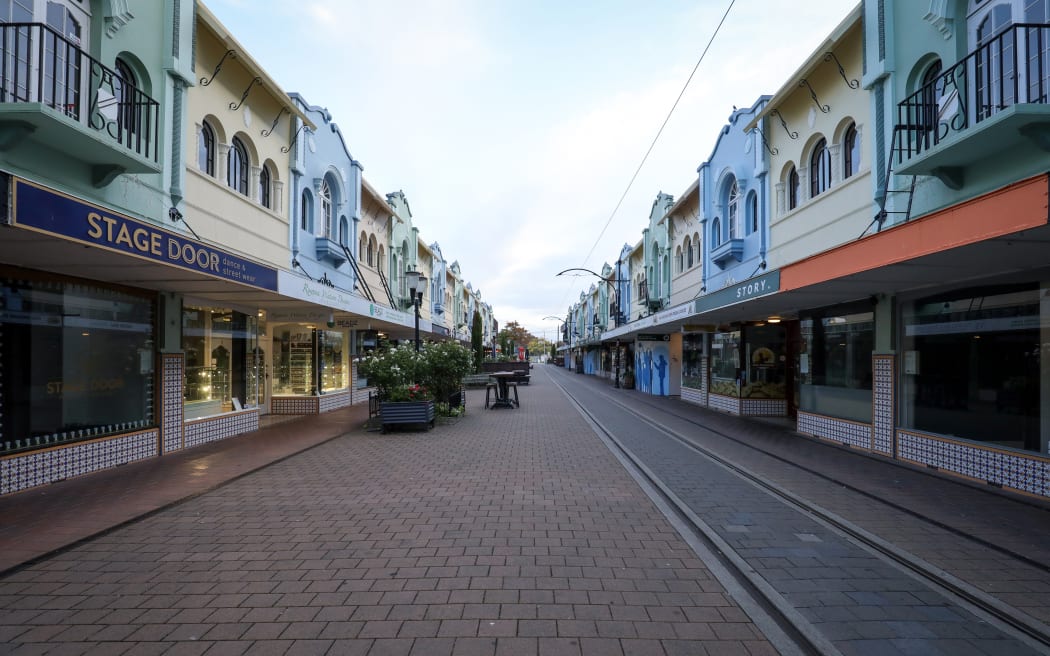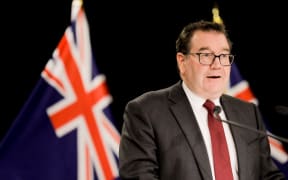The Covid-19 crisis has cut energy use sharply, as shuttered shops and factories remain in the dark.

Photo: RNZ / Nate McKinnon
With lower electricity usage, has come lower electricity prices.
Figures from the consultancy Energy Link show electricity usage has fallen by 15 percent on weekdays, since the lockdown began.
Managing director Greg Sise said lower or non-existent usage of electricity in commercial or industrial premises more than compensated for the fact that more people were staying at home, keeping lights or heaters on in their houses during the day.
He said this was proven by a smaller differential during weekends - power usage was down just 9-10 percent at that time.
There was also a much lower morning peak, since people were not arriving at work, and turning on lights and heaters, or the kettle, to start their workday.
The closure of a pot line at Tiwai Point was expected to cut electricity usage for the nation by a further 1 percent.
Along with lower electricity usage came lower electricity prices, down by around 20 percent since the lockdown began, depending on location.
- If you have symptoms of the coronavirus, call the NZ Covid-19 Healthline on 0800 358 5453 (+64 9 358 5453 for international SIMs) or call your GP - don't show up at a medical centre
Sise said the lower usage of electricity also helped ward off a potential problem from reduced North Island hydro capacity.
Months of drought reduced water storage in Lake Taupo down to 69 percent of average, according to figures from Transpower.
This would normally reduce the amount of water available to flow down the Waikato River and so it would lower the output from the river's hydro dams.
But Sise said the reduced demand and movement of power from the South Island meant the drought would probably not cause a winter power crisis.
Even so, Transpower says it is meeting stakeholders on a regular basis to keep track of the problem.
Gas production has meanwhile been declared an essential industry and is keeping on with production.
A spokesperson for the Petroleum Exploration and Production Association said he did not expect a very big cut in output because a few big users such as Methanex dominated the market and they were carrying on with their work.
But there had been some problems as the industry battled with essential workers being in self-isolation when they were needed on the rigs.







